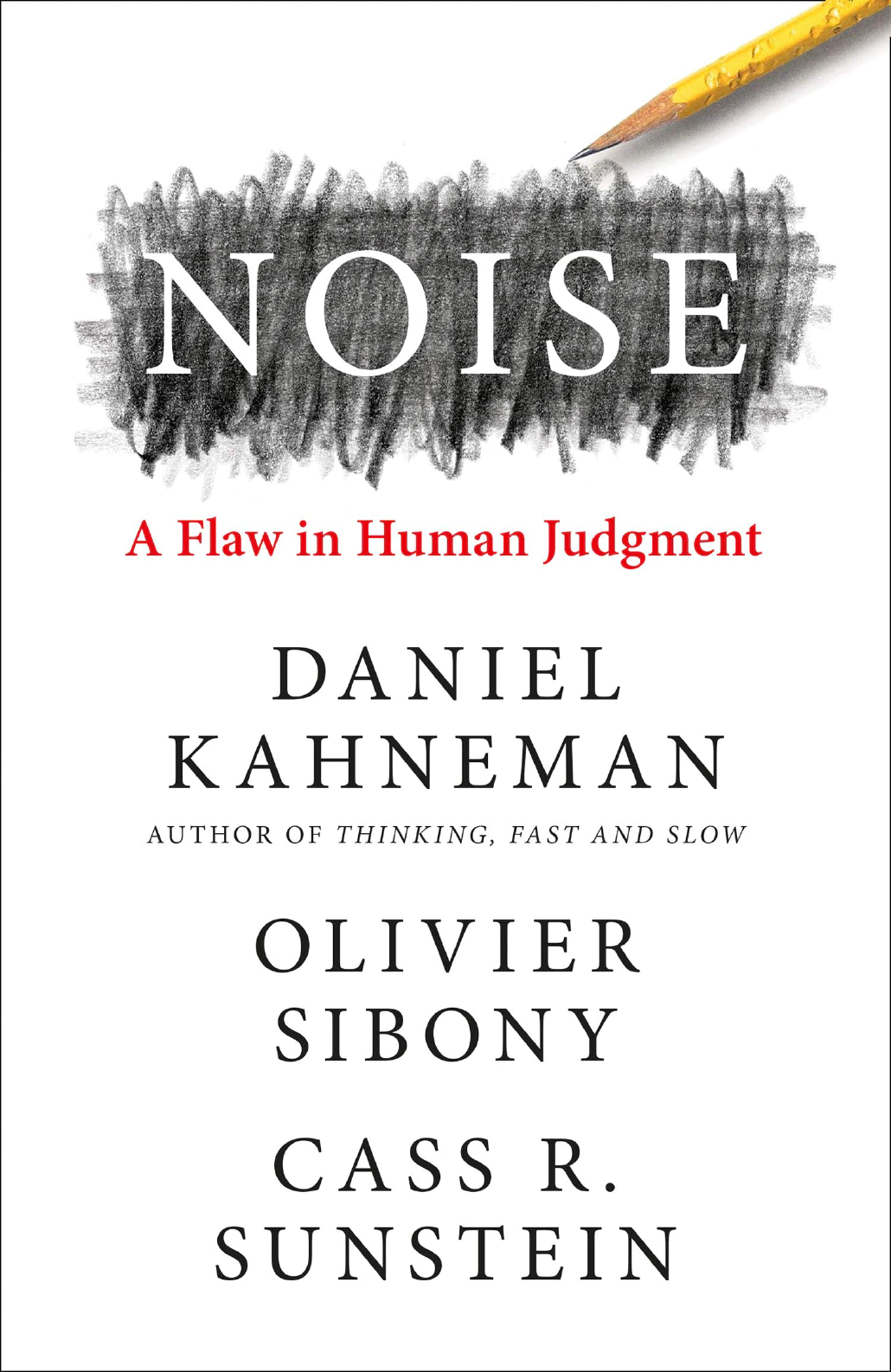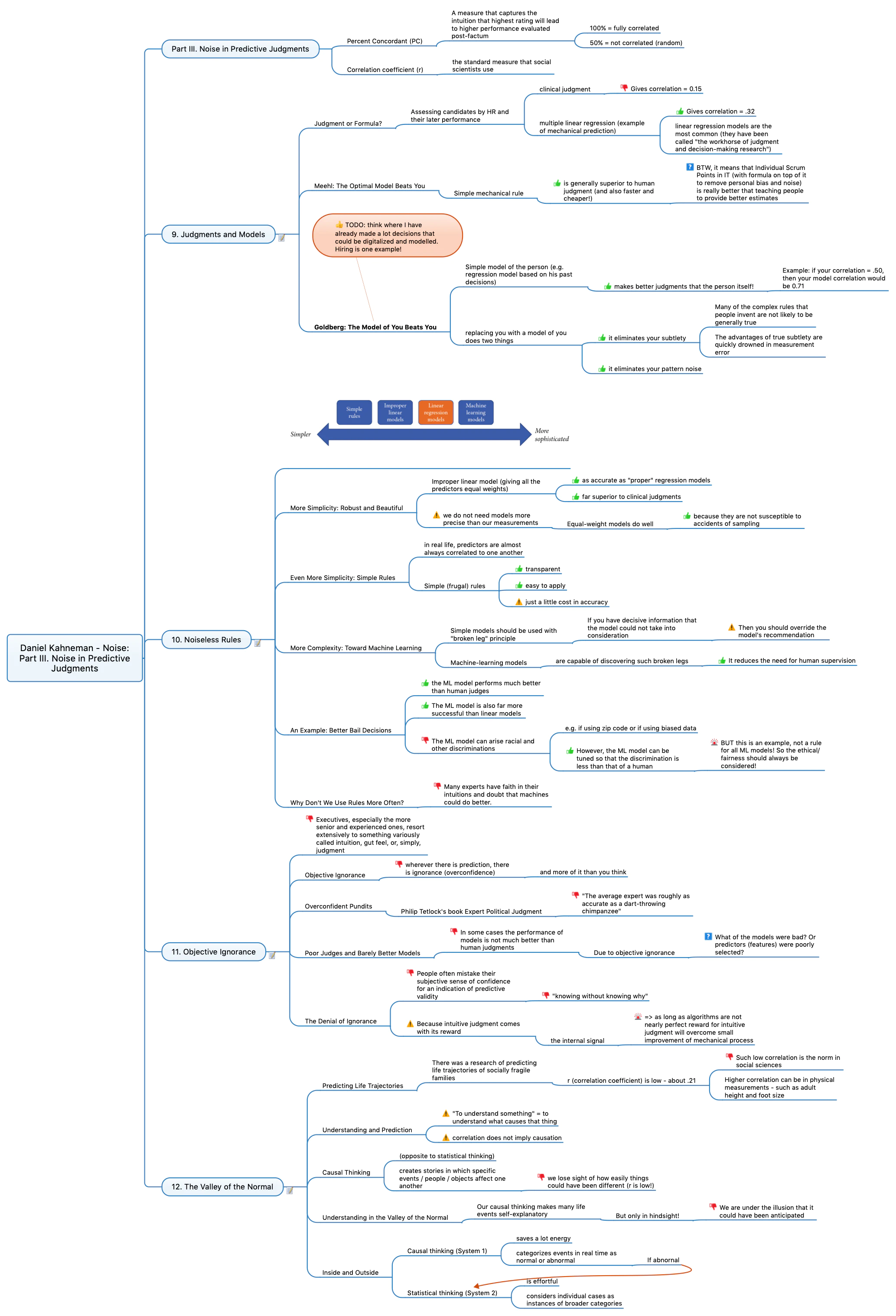Noise - Part III - Noise in Predictive Judgments

How to measure the noise in our daily decisions?
Which is better - expert judgment or mechanical prediction using very simple models/rules? Surprisingly, the model of you beats you! Even a simple regression model based on your past decisions!
How to make rules/models even less noisy? How can rules/models become more biased sometimes?
Why don’t people always use models (if they are so good) and still rely on their bad judgment?
When do we not need models?
In January, together with the Rational Answer books club, I was reading a new book from the Nobel Prize-winning author of “Thinking, Fast and Slow” and the coauthor of “Nudge”, a revolutionary exploration of why people make bad judgments and how to make better ones—“a tour de force”
I share a mind-map of the Part III - it covers all aspects of predictive judgment:
- Chapter 9. Judgments and Models
- Chapter 10. Noiseless Rules
- Chapter 11. Objective Ignorance
- Chapter 12. The Valley of the Normal
